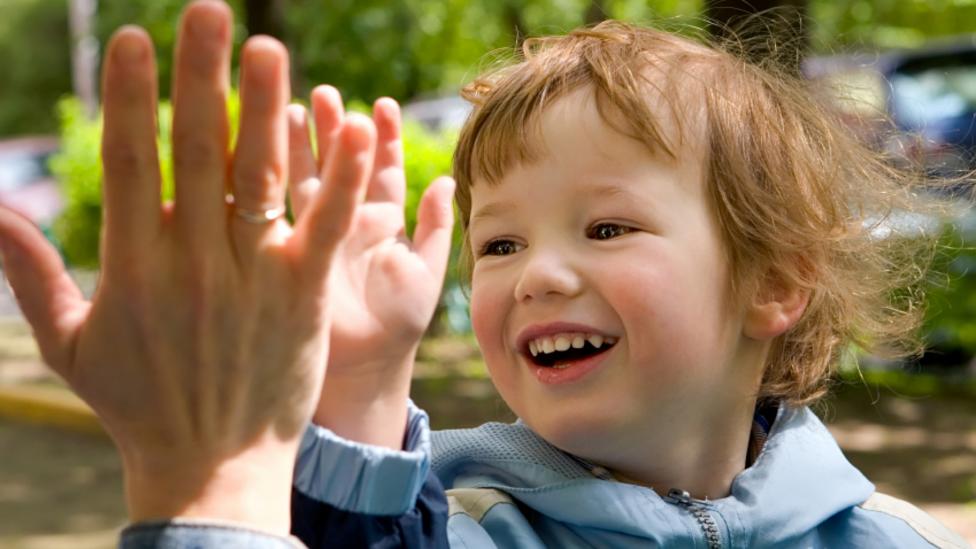Child development: 0-36 months
Tips and ideas to help you use CBeebies to support your baby and toddler at this crucial stage in their development.

Emotions and behaviour
Tantrums and tears
The toddler years are known for their tantrums, as small children experience strong emotions that they aren’t yet equipped to control, and feelings that they can’t fully communicate.
Helping your little one begin to recognise and name their feelings is a great step in their emotional development - for example, you could talk about the expressions they see on their favourite characters’ faces when they’re watching CBeebies, and discuss how that character might be feeling.
Reading stories to your child is another great way to help them understand feelings and develop empathy later on.
Your toddler and other children
At this age, children play mostly on their own, and will tend to relate more to adults than other children. They love to copy adults, and will try to do the things you do.
When you see your toddler standing staring at other children, they’re really busy absorbing the world around them and trying to figure out how other children (and grown-ups) act with others. It might look as though they’re not too interested in other people, but they are storing away all sorts of ideas for how to engage with others.
Watching other children, playing alongside them, and watching them on CBeebies can all help your little one build up a template of how to behave towards others.
Communication
Learning to talk
Learning to talk is, of course, a complicated process, and all children develop in their own time, at their own pace – but there are a few general milestones to look out for.
By the time they’re hitting the toddler years, your child will be showing an interest in words, and by the age of around two, they’ll probably be able to say 50-100 words or so, but might recognise lots more – they should be able to follow simple instructions, listen to simple stories, song and rhymes.
They’ll be able to put two words together in a sentence (e.g. ‘Me juice’), and might ask lots of two word questions (like ‘Where’s Daddy?’).
Making and listening to music
Babies are born with a natural ability to appreciate music, and being exposed to music early in life can be really important in ‘wiring’ your baby’s brain for learning. Singing songs helps children to learn how language is put together, and rhythms, patterns and beats are useful for developing problem-solving and reasoning skills later on. Find out how using music and rhymes with your child can help their language and literacy development.
Making sense of the world
Play and understanding
Again, again! You’ve probably noticed that your toddler seems driven to repeat some types of play over and over again in different ways, before they move on to something else – this kind of exploratory play where toddlers are in charge of their own activity is how they learn about the world and how it works.
Developmental psychologists call these sets of play behaviours ‘schemas’ (pronounced ‘skaymas’). You might find that your little one has a few schemas going on in their life for a while, before a new focus comes along.
‘Helping’ at home
Your toddler loves to be close to you, and get involved in anything and everything you’re doing. As much as you might wish they could be playing out of the way while you get on with things, it can often be easier to let them join in.
Give your child play utensils and play dough (or real food) when you’re in the kitchen so that they can try ‘whisking’ or ‘chopping’ – they might copy you or do their own thing, but don’t worry if they’re doing things ‘wrong’, their play is all about exploration and discovery at this stage.
If you’re up for it, actual cooking or baking with little ones is a fantastic way to introduce simple maths, develop fine motor skills, concentration and language skills.
Physical development
First steps
Learning to walk is one of the biggest milestones for this age group but in fact, from tummy time to crawling, babies develop just as many vital skills before they take to two feet.
Exercise and keeping active
It might feel as though you spend your life running around after your newly-mobile toddler, but it’s important to make sure they’re getting as much opportunity to get active as you are, whether it’s walking to nursery, dancing in the kitchen, or even helping with the housework!